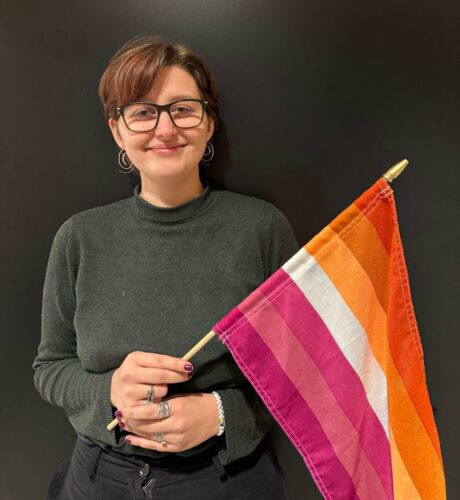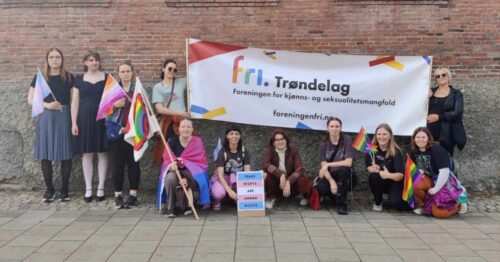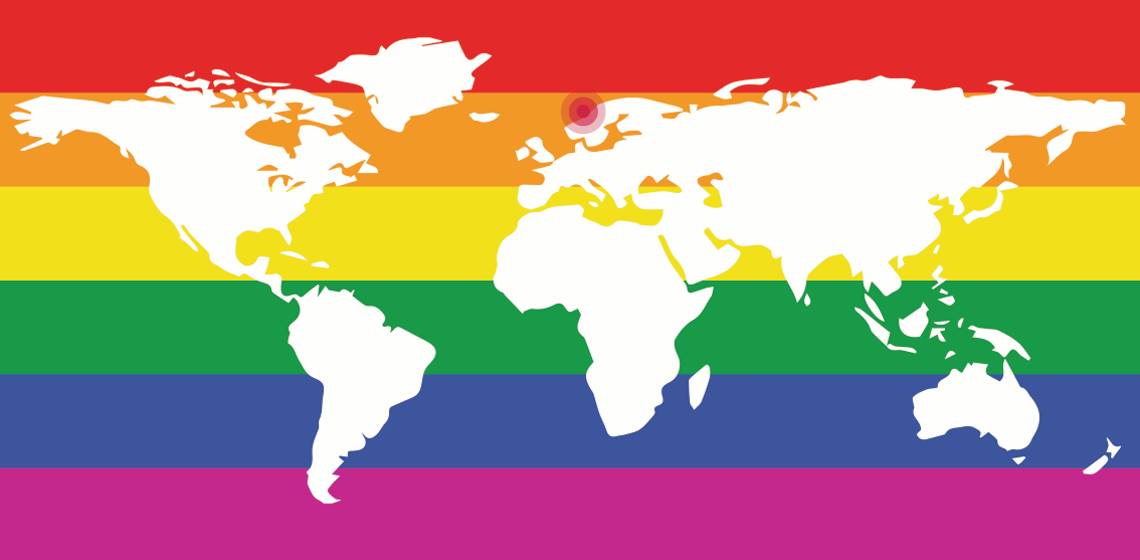After a considerable pause, qLit’s longest running article series is now back! Although we have already written a number of articles about living in Norway as a foreigner, now it is time to hear about the experiences of a native Norwegian.
The specific inspiration for this article was that, at my Norwegian course, I had to make a presentation about a topic of my choice, related to Norway, and of course I landed on LGBTQ+ life in Norway and more specifically at my university, which is the largest in the country. The reason why I thought it was a great topic is that although Norway is one of the best places to be queer in the world, it also has a large number of immigrants coming from countries where being an LGBTQ+ person is not only not supported or protected, but it is punished. I have a number of such classmates and colleagues, and I did have several strange conversations about my identity with people coming from outside of Norway.
For the presentation, I first interviewed Vilde who is on the board of the university’s LGBTQ+ student organization. Welcome her!
Hey, Vilde! Can you introduce yourself?
My name is Vilde Modal Olsen. I am a Bachelor student of Sociology at the Norwegian University of Science and Technology (NTNU), in Trondheim, and I am an active member of NTNU’s LGBTQ+ student organization, called Skeive Studenter.

Just like in English, you have gendered pronouns in Norwegian, so it becomes important how you define yourself. Which pronouns do you use?
I use hun/henne (she/her) pronouns in Norwegian. I am cisgender and have always used these, but now it’s more about an identity shaped by wanting to be seen as a woman with all the shared experiences associated with it, rather than an internal sense of femininity. In the Norwegian LGBTQ+ community, there are many people who use hen/hen or de/dem, kind of like the singular “they” in English. It varies who prefers what, which is shaped by the origins of these pronouns.
What do you mean?
Hen is borrowed from Swedish and it is specifically a non-binary singular third gender pronoun. On the other hand, de has long existed in Norwegian, being the third person plural (“they”), but in formal contexts, like when addressing the royal family, it was once used in the singular. Understandably, that is a very great shift in contexts.
Indeed it is. Now tell us a bit about living as a queer person in Norway.
In my daily life, I feel safe as a queer person in Norway, but I have only lived in bigger cities (Oslo and Trondheim), so this may have an impact. I feel it is harder to be out in the countryside. I would also add that there are some individual incidents or specific themes that deviate from this overall positive experience though, for example the Oslo Pride shooting or the situation of trans or non-binary people.

As a university student, it takes a large part of your life to be on campus. How do you feel at the university?
I don’t feel that my queer identity has affected my academic opportunities at NTNU. Teachers seem to be more or less informed about the topic, and one can write one’s thesis basically on anything, LGBTQ+ issues included. But most importantly, the university has been essential for me for forming friendships and social networks since I am not from the area and only came to Trondheim for my studies.
So your experiences are generally positive. But do you think the university could do more? For example, non-binary toilets or visible signs of support?
Well, I haven’t felt unaccepted as a queer person at NTNU, but you are right, I can’t think of specific examples of what the university does to ensure visibility and acceptance. It’s often voluntary organizations that I’ve seen actively promoting LGBTQ+ visibility, rather than the university itself.
Exactly. Well done, Skeive Studenter! Thank you, Vilde!


